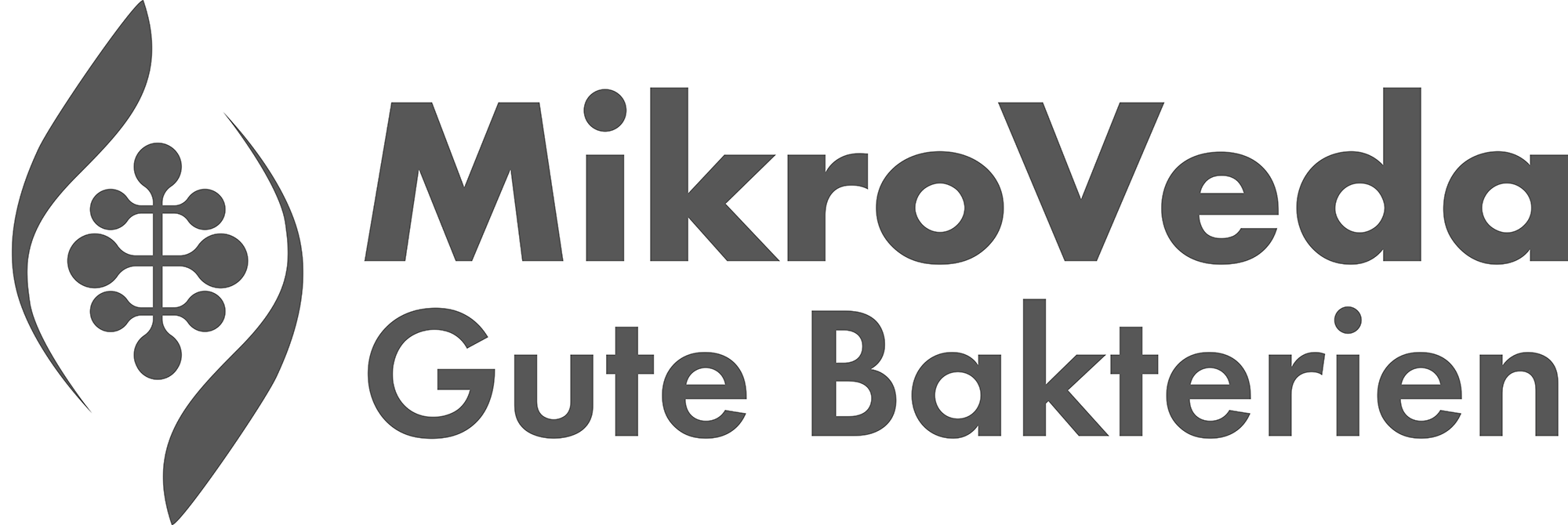So-called Effective Microorganisms and their numerous welfare effects were discovered and developed into cultures by a team of scientists on the Japanese island of Okinawa. MikroVeda is the European technology partner of this company, where Prof. Dr. Teruo Higa was a technical advisor. As pioneers in this field, they developed microorganism complexes more than 30 years ago from the technology now known in Europe. It gained considerable worldwide importance and was brought to Germany and further developed by the pioneers Kurt Walter Lau and his wife Gabriele Freitag-Lau in 1998.
With the foundation of MikroVeda they started a decades-long research and experience of the microorganism fermentation technology, which today produces unique microorganism preparations, which could not be copied worldwide. Today, specially communitized, genetically unmodified, living microorganism strains are used in a coordinated fermentation process to produce preparations that can enrich diverse microbiomes such as human, animal and natural. MikroVeda has an international network and trade relations, but still relies on craftsmanship and tradition in fermentation technology. Also, MikroVeda acts as a contract manufacturer and offers other brands the possibility to produce fermentation products with the quality of MikroVeda microorganisms via their production made in Germany.
MikroVeda microorganisms as starter cultures for microbiomes
Microbiomes permeate all living organism complexes, whether human, animal, plant or soil, and even the atmosphere. In addition to the health aspects of soil, plants, animals and humans, they are also crucially involved in the build-up and breakdown of biomass. According to statements already made by earlier authoritative agricultural researchers, such as the physician and microbiologist Dr. Hans Peter Rusch or the botanist Dr. Hugo Schanderl, horticulture and agriculture are unimaginable without microbiomes. The molecular biologist and geneticist Prof. Dr. Joshua Lederberg, Nobel Prize winner, coined the term “microbiome" in reference to the genome.
How it all began…
In the early 1980s, Japanese scientists developed a mixture of non-GMO microorganisms that turned out to be a great opportunity for the depleted, over-fertilized and poisoned nature and are now known as Effective Microorganisms. They combined several microorganisms, so-called biocultures, consisting of various photosynthetic bacteria, lactic acid bacteria, yeasts and ferment-active fungi. Many of these microorganisms have been used, in some cases for centuries, in agriculture, horticulture, environmental remediation, medicine and the food industry, and are highly beneficial to humans, animals, plants, soil and water.
A wide range of possible applications
The applications of communitized microorganisms are so diverse that they can be used in almost every area of life. Due to the diversity of microorganisms and their adaptability, it was possible to develop different preparations from them, which can be used for special fields of application, i.e. problem areas or environments. Since this technology originally comes from the agricultural sector, it is obvious that it has a certain focus there, but it is now used in a wide variety of ways in everyday life. Other areas of application, such as soil and environmental remediation, wastewater purification and waste treatment, are becoming increasingly important. In addition, and this is a trend-setting development, there are also more and more food or supplements as well as care products for humans and animals from and with communitized microorganisms.
Garden and agriculture
Through a targeted inoculation with starter cultures from MicroVeda microorganisms of soils and plants in gardens, orchards and on arable land, plants grow healthier and as higher quality food or feed and last longer as harvested crops. In combination with a sufficiently large amount of organic matter (OS), as is often produced in gardening and home economics, but also in agriculture, the indispensable humus build-up of our cultivated soils can be accelerated and sustainably stabilized with microorganisms over time. Plants also feed mainly through their roots on living protozoa, soil fungi and soil bacteria. This process is scientifically called “endocytosis". (Rateaver, Bargyla. u. Rateaver, Gylver.: “The Organic Method Primer. UPDATE, 1993; The Basics." 1994; Pommeresche, Herwig.: “Humussphere – Humus, a substance or a system?". OLV Verlag, Xanten. MicroVeda microorganisms are the ideal feed basis for this.
Animal care
Still other special preparations can be used quite specifically in agricultural as well as private animal care. The microorganisms displace problematic germs and create a natural environment. For example, farmers and horse lovers, dog and cat lovers, rabbit breeders and bird keepers spray MikroVeda microorganisms e.g. in their stables, runs, animal toilets and sleeping places, cages, perches etc., even on the animals themselves. Bad odors are greatly reduced or disappear completely, flies and other pests are deprived of their livelihood. The animals thank their keepers with a shiny coat, plumage, stable claws, hooves and paws as well as with striking vitality and joie de vivre.
Foul odors
Even against bad smells the multi-talent “MikroVeda Mikroorganismen" has something to offer. Odors are produced by bacteria that live freely everywhere in nature and live from the decomposition of organic matter. Covering up these odors with scent dispensers, room sprays, basin stones, scented oils, etc. is not a sustainable solution. The MikroVeda microorganisms reduce or neutralize on the one hand the negative germ load and decompose on the other hand at the same time the polluting organic materials, without causing bad smells in the first place.
Ponds and aquacultures
The highly concentrated microorganisms support and accelerate the self-cleaning process of the pond ecosystem. At the same time they improve and stabilize the ecological balance, so that vitality and regeneration of the pond are sustainably increased. Special features of a pond maintained with our special preparation:
stable pH values,
clearly better visibility depths,
less mulm/sludge at the bottom of the pond,
hardly any musty smells,
prevention of critical increase of pollutants,
good self-cleaning, among other things due to faster conversion of ammonium-nitrogen, which is primarily produced by the decomposition of animal and plant proteins,
healthy plant growth,
vital fish and other aquatic animals.
Wellness & Vitality
Active health care is the order of the day these days. Also the vegan lactic acid bacteria in the MikroVeda microorganisms and their natural products serve the active fitness precaution and support in completely natural way the natural cleaning and regeneration of the intestinal flora. We offer several finely acidic products to this complex, whose formulas contain even more essential microbial strains to develop a stable natural effect.
Household
Our products can also be used in the house, yard, garage, warehouse, etc. for various purposes. Here are a few examples:
Improvement of indoor climate,
removal of fungi and bad smells from shoes, cupboards, chests of drawers, etc.,
cleaning of cars, tractors, trailers and other vehicles; even long stuck cigarette and pet odors are removed. Engine block washing is possible without chemicals,
unblocking of clogged and foul-smelling drains,
regular cleaning and maintenance of sinks, toilet ceramics, tiles, bathtubs and shower trays; all drains are colonized by the regenerative, restorative microbes, so that disease-causing, foul-smelling germs have no chance,
our recommended cleaning and care products can in principle be used on all surfaces that require regular or one-time cleaning and care.


